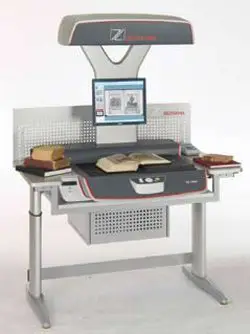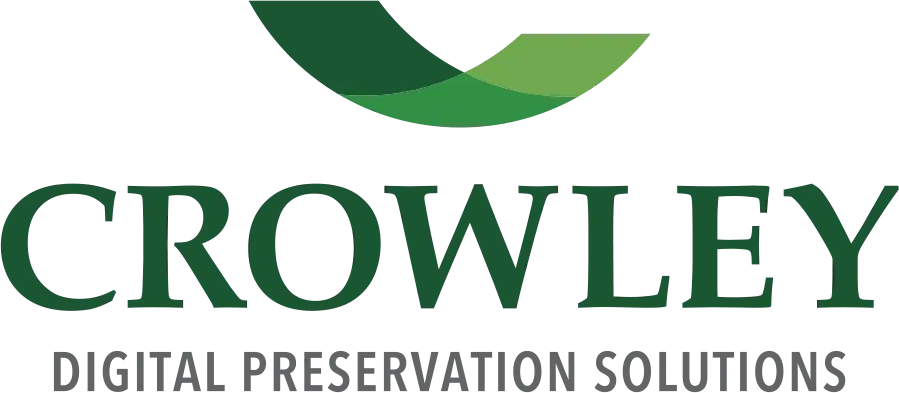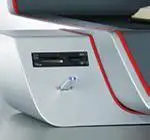Zeutschel Bookcopies Ease Student and Faculty Research While Encouraging Green Practice and Economy

With almost 34,000 students pursuing higher education in 2010, a North Carolina university has changed the way students “hit the books” with the purchase of seven Zeutschel overhead book copiers. The university’s main campus library had five standard paper copiers replaced with three state-of-the-art Zeutschel Color OS 12000 Bookcopy (12000BC) units. Four additional units are located in branch libraries.
Purchase Criteria
While in his first year at the university, the Library Technology Services Leader (LTSL) noted ongoing complaints from students and faculty about the copy machine service the library provided. Complaints included lack of productivity, less than satisfactory images and the pay-as-you-go fee. User dissatisfaction, combined with a desire to be ecologically responsible, led the LTSL and the school’s library directors to research options that would both please faculty and students and further move the university toward becoming a technological leader among academic libraries. The directors sought recommendations from other universities and institutions, weighing the pros and cons prior to partnering with The Crowley Company, the United States’ exclusive reseller of the high-end, German-engineered Zeutschel scanning systems.
Purchase criteria included the following:
- Unit(s) must reduce the current copier footprint (ie: offer a green option that reduced or eliminated
the need for printing)
The 12000BC allows scans to be made directly to portable media such as USB drives, providing digital files of scanned material. This environmentally-friendly feature allows students, faculty and staff access to the library’s various educational materials where they need it most – from their laptops and office computers – and reduces paper, ink and toner consumption by a significant percentage. Other 12000BC data display options include: direct-to-printer; digital data; memory card and direct-to-email. - Unit(s) must provide high-quality scans/images
Zeutschel’s exclusive Perfect Book 3D scan technology provides auto-crop, auto-deskew, auto-page split and eliminates book curvature to produce clean, crisp images. The units scan in grayscale, black and white and color. A large monitor allows patrons to preview the image. Rear, glare-free lighting produces evenly illuminated scans. An additional option is Zeutschel’s OmniScan capture software system. With this software, the bookcopy unit can double as a robust and flexible archival and preservation batch back-office scanner, allowing multiple university departments to share budgets as the system provides the dual role of fulfilling archives/special collections needs as well as student services. - Unit(s) must accommodate high-traffic
With a scan speed of only one second for grayscale/black and white output and four seconds for color output, the 12000BC offers the efficiency and physical hardiness needed to withstand high use. - Unit(s) must offer ease-of-use
Although the university has significant signage posted in addition to the Zeutschel units’ on-screen tutorial, the reality is that most walk-up patrons just want to push a button and go. The Zeutschel system operates intuitively and the library has reported minimal operator issues. - Unit(s) must protect original material
The split book cradle of the 12000BC protects book bindings up to 4” thick; low-level, non-UV light emission offers additional protection. - Unit(s) must be affordable
As a public institution, the university adheres to the formal bid process. The LTSL attributes Crowley’s response to the bid requirements and their competitive pricing to the decision to purchase the 12000BC units. Funding came from student technology fees and was offset by elimination of the pay-as-you-go fees that were required with the standard paper copies.
Implementation
Within each building, the LTSL and staff had to carefully consider factors from environmental issues, such as sunlight exposure, to pedestrian traffic patterns to the integration of the 12000BC into the existing décor. Taking these into account, the tabletop units were placed away from windows and onto designer furniture which better suited the library’s sophisticated décor than the standard 12000BC library table.
The LTSL noted that the installation process went very well and expressed satisfaction with the ease and efficiency of the installations, the custom training provided to himself and 15 staff members and Crowley’s ongoing support. The university also purchased a preventative maintenance agreement which includes standard biannual on-site service visits, software and equipment updates and emergency services if required.
Patron Use and Output
Ranked in the top 25 of public university research libraries in North America*, the libraries’ Zeutschel units are largely used to aid in research efforts. The majority of digitally produced images on the 12000BCs are of educational material scanned from books, newspapers and large-format documents such as drawings and maps. According to the LTSL, the primary output formats used by university students and staff are JPEG and PDF. The units are capable of producing seven different file types including:
- JPEG
- PDF (single/multi-page)
- TIFF (uncompressed, Group 4, multi-page)
- PNG
- others
Initially, the library staff was concerned that the versatility and affordability of the Zeutschels would encourage patrons to bring large-scale scanning tasks to the library, suspending availability to other patrons and/or attempt to scan large portions or entire books to avoid textbook purchases. The staff quickly found that social pressure (lines formed behind the units) keeps scanning projects within reasonable size and time.
Feedback
Between 10,000 and 16,000 people visit the university libraries each day and many take advantage of the new Zeutschel book copiers. The library staff is in the process of determining a quantitative measurement of their return on investment (ROI); they are already reassured by the increased usage and the decreased cost of printing supplies that the purchases have been worthwhile.
The purchase of seven Bookcopy units speaks volumes of the university’s overall satisfaction with the Zeutschel product. The LTSL has observed firsthand the versatility of the Zeutschels, saying that design school students especially “have been able to be rather inventive in respects to the types of material they are able to scan.” Pleased with the original purchase, the university will continue to work with The Crowley Company to keep the Bookcopy systems in best working order and updated as technology and scanning programs advance. At press time, one such consideration is the purchase of touch-screen monitors and the optional email function for each unit.
*Statistics provided by the university, 2010

